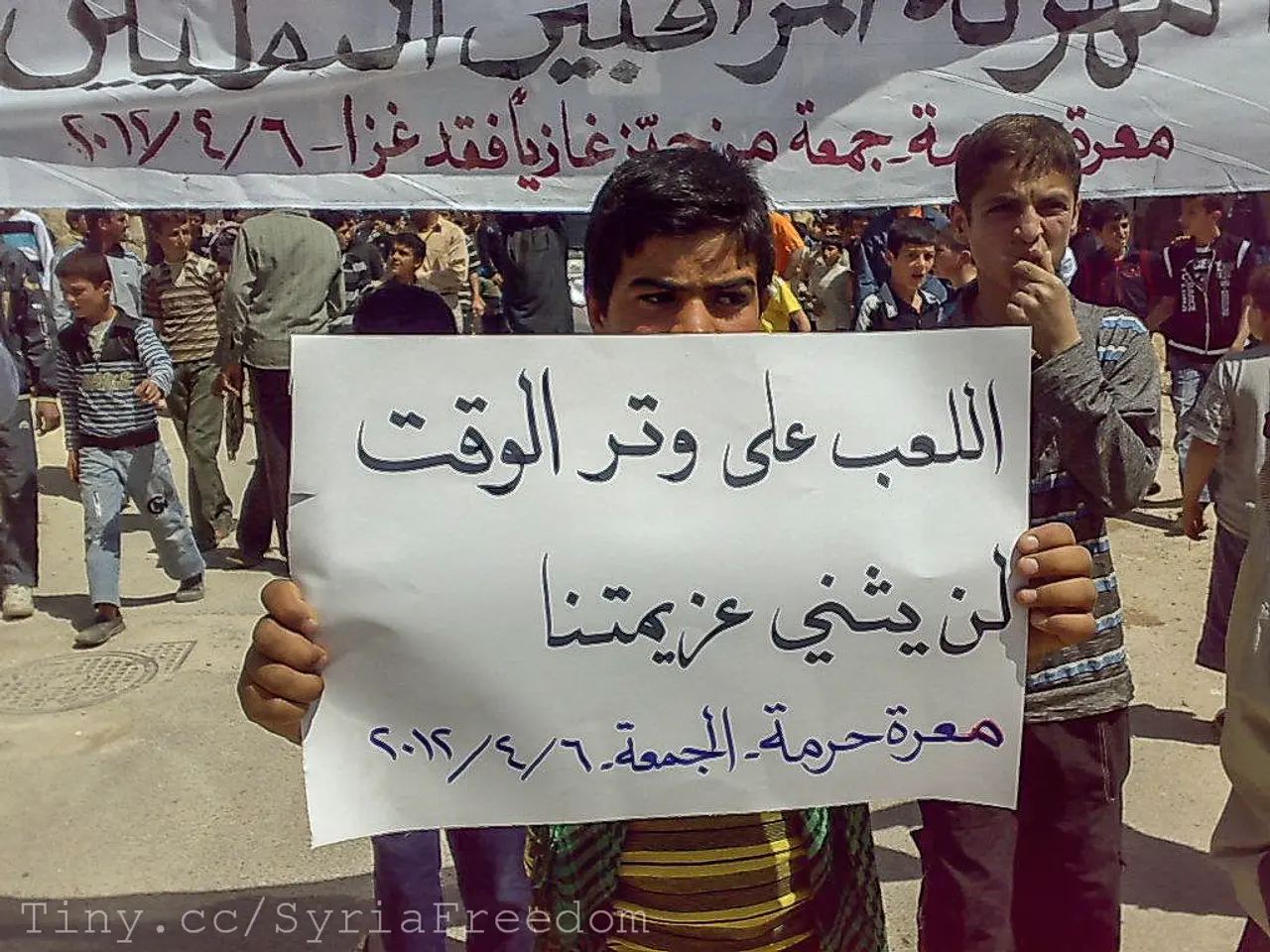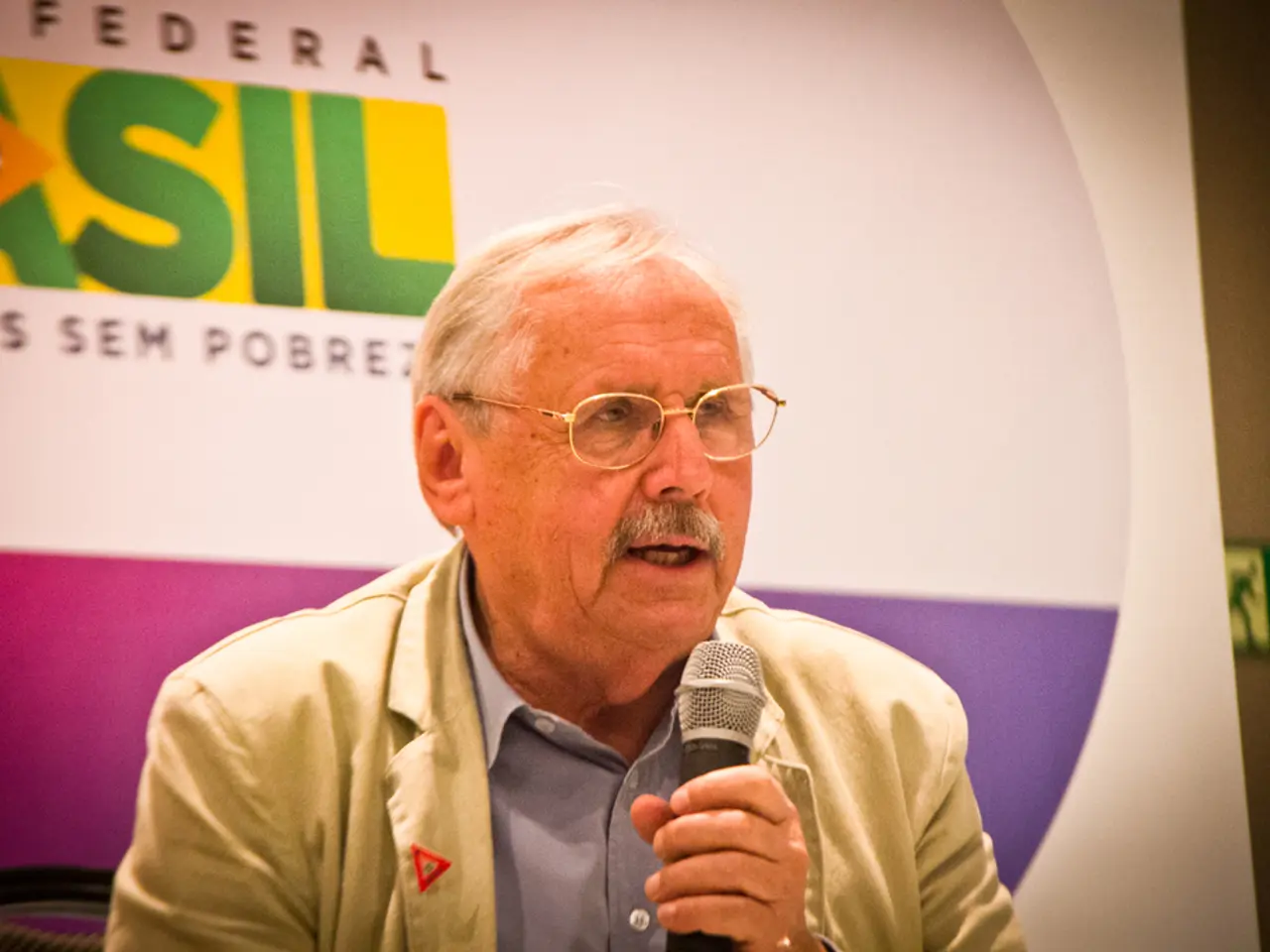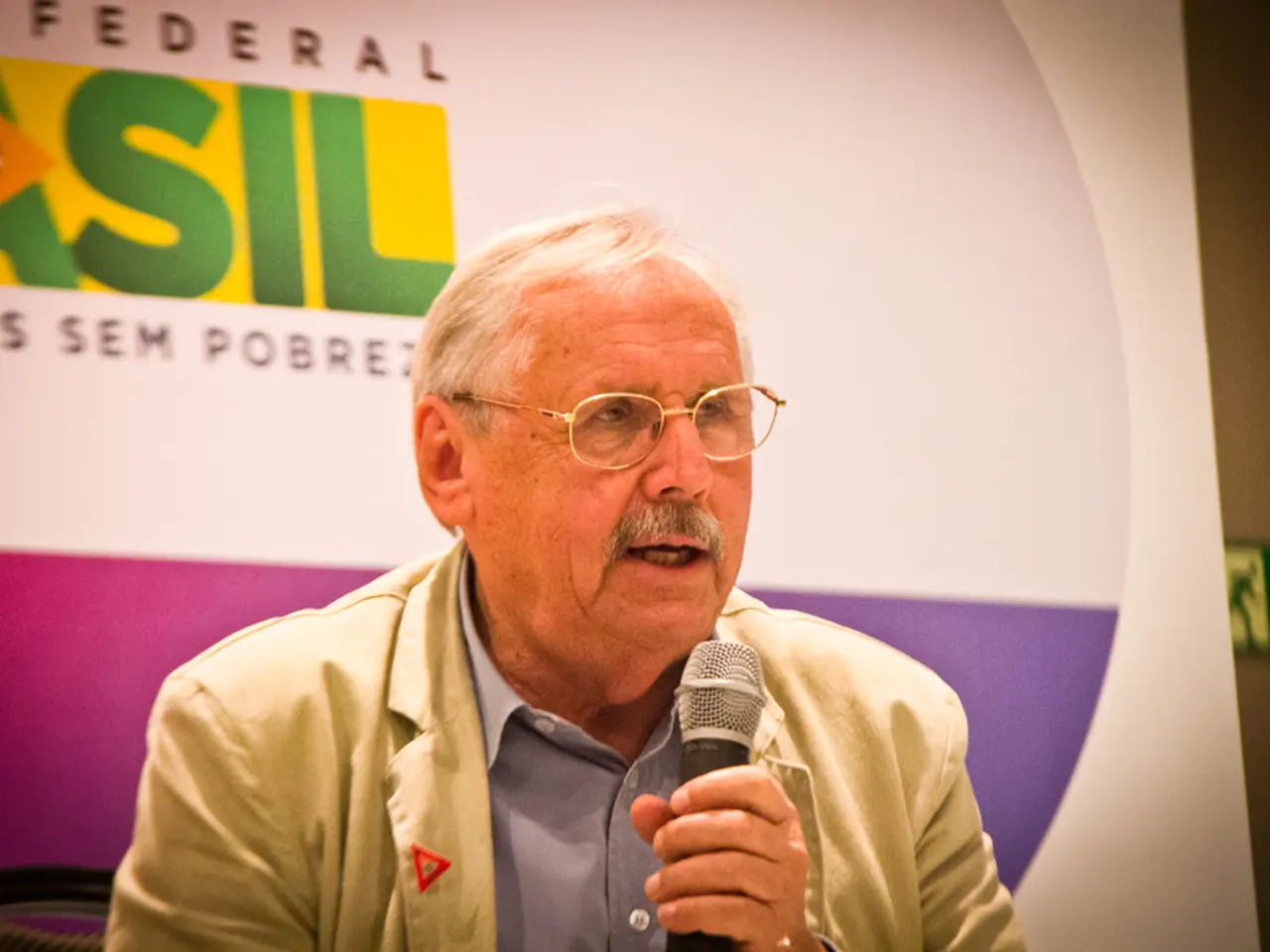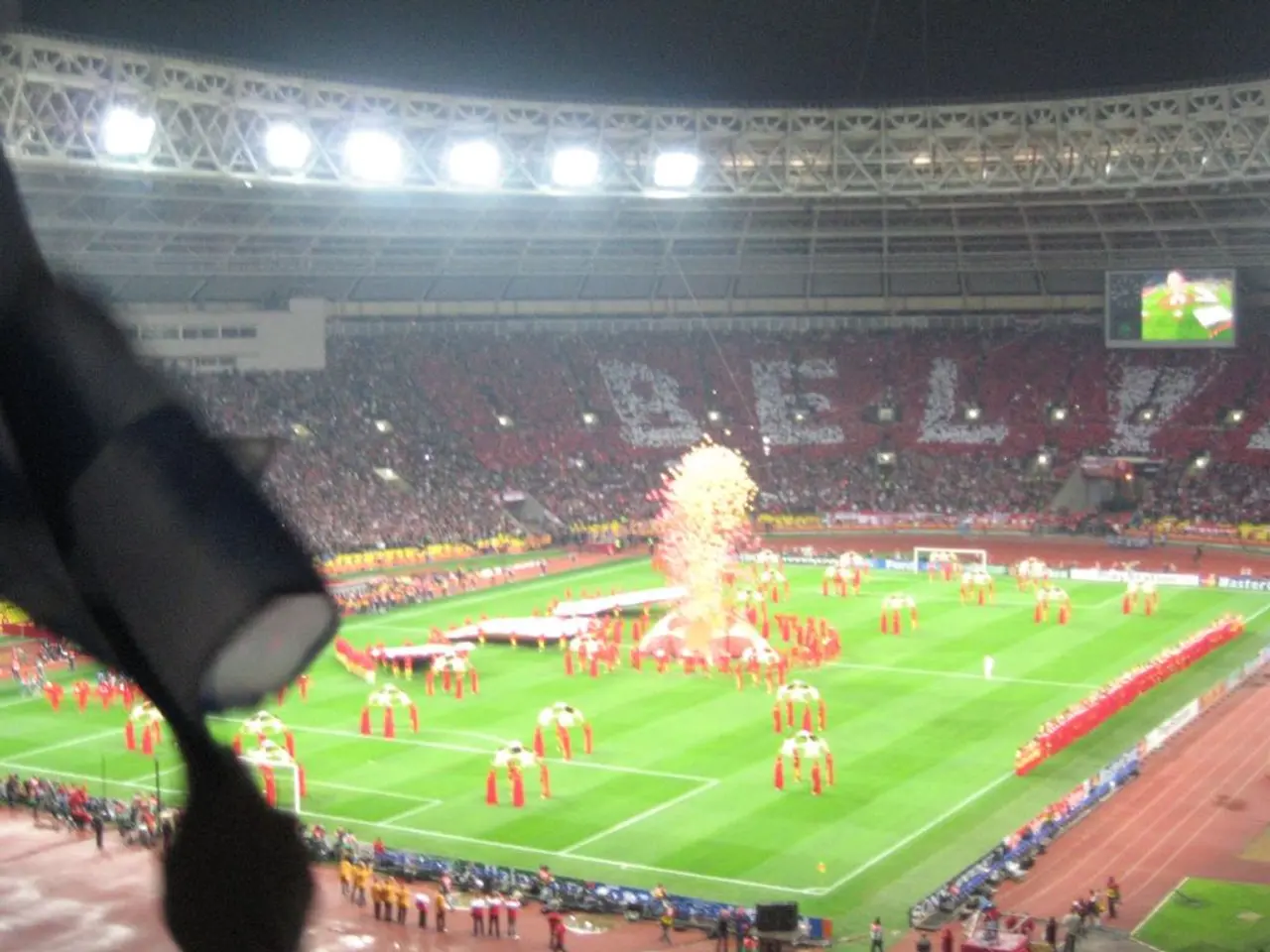Protesters in Estonia urge the Foreign Ministry to stop backing aggression and breaches of international law; they call for an end to collaboration with Israel.
In a demonstration held in Tallinn on July 15, 2025, local Palestine solidarity group PALestonia protested against Estonia's decision to establish diplomatic relations with Israel through an embassy. The rally, sparked by the announcement of Israel's intention to open an embassy in Estonia, saw participants advocating for the revocation of this decision.
The protestors criticised Estonia's foreign policy, particularly a recent meeting between Estonian Foreign Minister Margus Tsahkna and Israeli Foreign Minister Gideon Sa'ar, which they perceived as legitimising Israel's actions in Palestine. They argued that both the International Court of Justice (ICJ) and the International Criminal Court (ICC) had failed to take sufficient measures against Israel, and called for Estonia to "remain consistent in defending international law and human rights" and to maintain "a balanced and independent foreign policy".
The protest highlights growing domestic debate in Estonia over its Middle East policy. While the demonstration did not result in any immediate policy changes, it reflects a segment of Estonian society that is critical of closer ties with Israel, especially in light of the ongoing Israeli-Palestinian conflict. Notably, Estonia has also seen pro-Israel rallies, such as one organized in June 2025 on Toompea Hill by local Christian and Jewish groups, which celebrated Israeli-Estonian relations.
The embassy opening is set to proceed, signalling that the government is prioritising diplomatic and technological cooperation with Israel. However, the protest may increase public scrutiny of Estonia's foreign policy positions and the transparency of its decision-making processes regarding Israel.
Estonia is deepening its diplomatic relationship with Israel, marked by the forthcoming opening of an Israeli embassy in Tallinn. This move is framed by both governments as a step to strengthen cooperation in cybersecurity, defence, economic development, and digital innovation—areas where both countries have strong expertise. Estonia's government has positioned itself as a "steadfast supporter of democratic values" and a partner for Israel in the Baltic region.
On the European level, despite broader EU discussions about potential sanctions against Israel over humanitarian concerns in Gaza, Estonia—under the leadership of former Prime Minister and current EU foreign policy chief Kaja Kallas—has not taken a leading role in pushing for sanctions. The EU has not reached consensus on sanctions, with Germany, Italy, Hungary, and the Czech Republic forming a blocking bloc, and Austria and Slovakia also reluctant to support punitive measures. Estonia's stance appears to align with this cautious, pro-dialogue approach, rather than with the more critical positions of countries like Spain and Ireland.
In summary, Estonia is strengthening its bilateral relationship with Israel, particularly in technology and security, despite domestic protests and broader European debates about Israel's policies. The government's current foreign policy prioritises partnership over confrontation, while public opinion remains divided. The protests in Estonia, led by groups like PALestonia, are gaining momentum, with participants demanding the cancellation of the decision to open the Israeli Embassy in Estonia. The future of Estonia's foreign policy towards Israel remains to be seen as these debates continue.
- The protest led by PALestonia, which voiced criticism towards Estonia's foreign policy and specifically the recent Estonian-Israeli meetings, is a manifestation of the growing domestic debate in Estonia over its Middle East policy, as some segments of society express concerns about closer ties with Israel.
- The protesters, during the demonstration against Estonia's decision to establish diplomatic relations with Israel, argued that Estonia should uphold its commitment to international law and human rights, and maintain a balanced and independent foreign policy, which has become a point of contention in the ongoing domestic debate.







